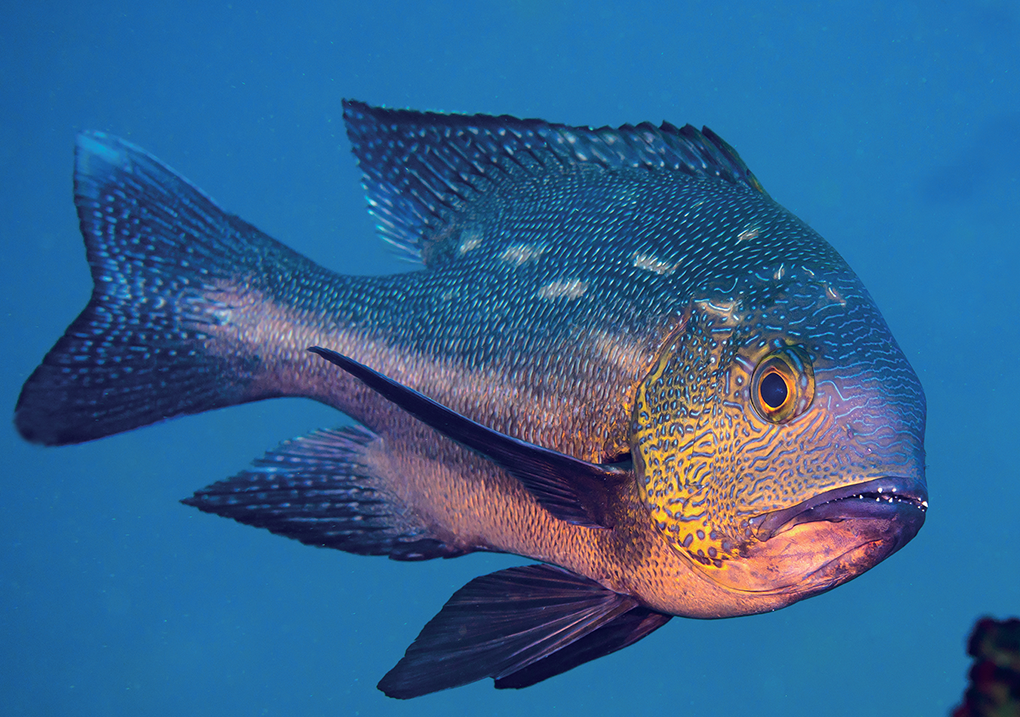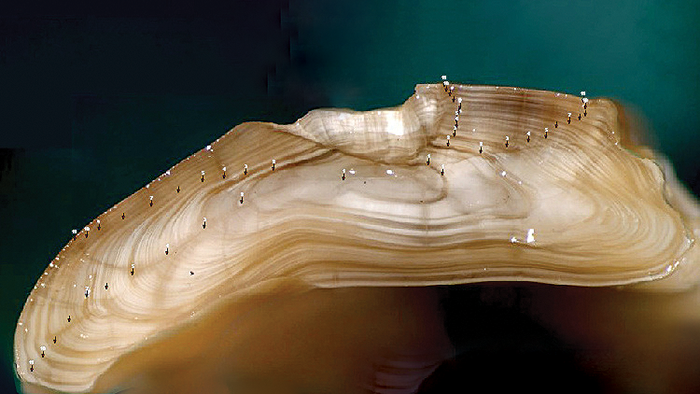
An 81-year-old Midnight Snapper caught off the coast of Western Australia has taken the title of the oldest tropical reef fish recorded anywhere in the world. The octogenarian fish was found at the Rowley Shoals and was part of a recent study published in the journal Coral Reefs that revises what we know about the longevity of tropical fish.
Australian Institute of Marine Science (AIMS) Fish Biologist Dr Brett Taylor, who led the study, said the Midnight Snapper beat the previous record holder by two decades.
“Until now, the oldest fish that we’ve found in shallow, tropical waters have been around 60 years old,” he said. “We’ve identified two different species here that are becoming octogenarians, and probably older.”
The research identified 11 individual fish that were more than 60 years old, including a 79-year-old Red Bass also caught at the Rowley Shoals. Dr. Taylor said the research will help science understand how fish size and age will be affected by climate change.
“We’re observing fish at different latitudes—with varying water temperatures—to better understand how they might react when temperatures warm everywhere,” he said.
The study involved four locations along the WA coast, as well as the protected Chagos Archipelago in the central Indian Ocean. It looked at three species that are not targeted by fishing in WA: Red Bass (Lutjanus bohar), Midnight Snapper (Macolor macularis), and Black and White snapper (Macolor niger). Marine scientists are able to accurately determine the age of a fish by studying their ear bones, or otoliths. Fish otoliths contain annual growth bands that can be counted in much the same way as tree rings.
Dr. Taylor said the oldest Red Bass was born during World War I. “It survived the Great Depression and World War II,” he said. “It saw the Beatles take over the world, and it was collected in a fisheries survey after Nirvana came and went.
“It’s just incredible for a fish to live on a coral reef for 80 years.”
—from materials released by the Australian Institute of Marine Science (AIMS)

Reference
Taylor, B.M., Wakefield, C.B., Newman, S.J. et al. Unprecedented longevity of unharvested shallow-water snappers in the Indian Ocean. Coral Reefs (2020).
https://doi.org/10.1007/s00338-020-02032-3





How awful that these amazing fish survived so long only to die for a study. I hope we learned a lot.
Great! Wouldve lived longer if we idiots didnt exist.